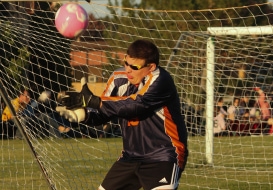A significant lag in a child's physical, cognitive, emotional or social maturity is called Developmental Delay. The range of developmental disability in children with WAGR syndrome varies, with most in the mildly to moderately delayed range. A few children with WAGR syndrome have profound delay, and a few have no delays.
Intellectual Disability is also common in individuals with WAGR syndrome, and also ranges from none, to mild, to severe. Intellectual Disability involves difficulty thinking, learning, and understanding. People who have Intellectual Disability learn, but do so more slowly than their peers.
Early intervention, physical, occupational and speech therapy, and special education each play a very important role in helping children with WAGR syndrome to reach their potential.
Regardless of the degree of developmental delay or Intellectual Disability, all children with WAGR syndrome can grow up to live happy, fulfilling, and productive lives.







Developmental Delay is diagnosed when a child does not reach developmental milestones such as sitting up, walking, and talking at the expected age:
Intellectual Disability is diagnosed by measuring a person's intellectual function and comparing their adaptive behaviors with others of the same age:
Like everyone else, people with Intellectual Disability never stop learning. They simply learn more slowly than their peers. With education and support, individuals with Intellectual Disability can lead meaningful, joyful, and often surprisingly independent lives.
Children born with WAGR syndrome are considered "at risk" for Developmental Delay, and may begin treatment before any delays are noted. These treatments are called Early Intervention Services because they are often prescribed for infants and young children. Treatments for Developmental Delay include:
Treatment for Intellectual Disability typically involves Special Education. Special education services include:
It is very important to remember that like everyone else, people with Intellectual Disability never stop learning. They simply learn more slowly than their peers. With education and support, people with Intellectual Disability can lead joyful, purposeful, and often surprisingly independent lives.
Sign up for News & Events
COPYRIGHT© 2025 IWSA / International WAGR Syndrome Association
